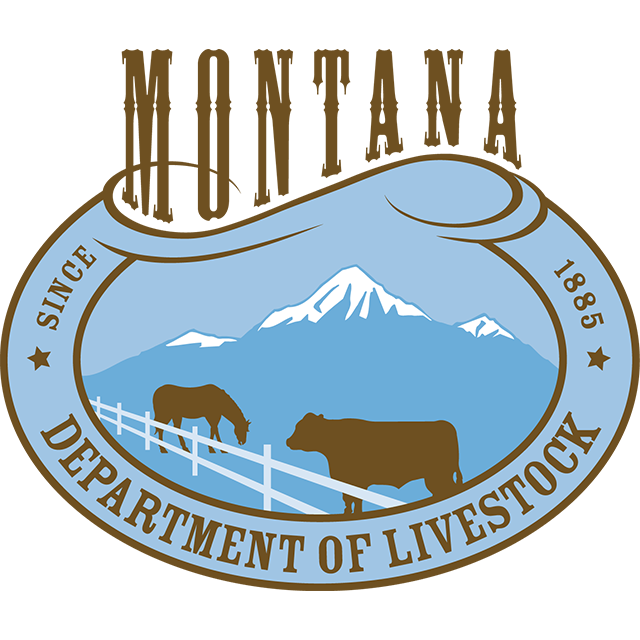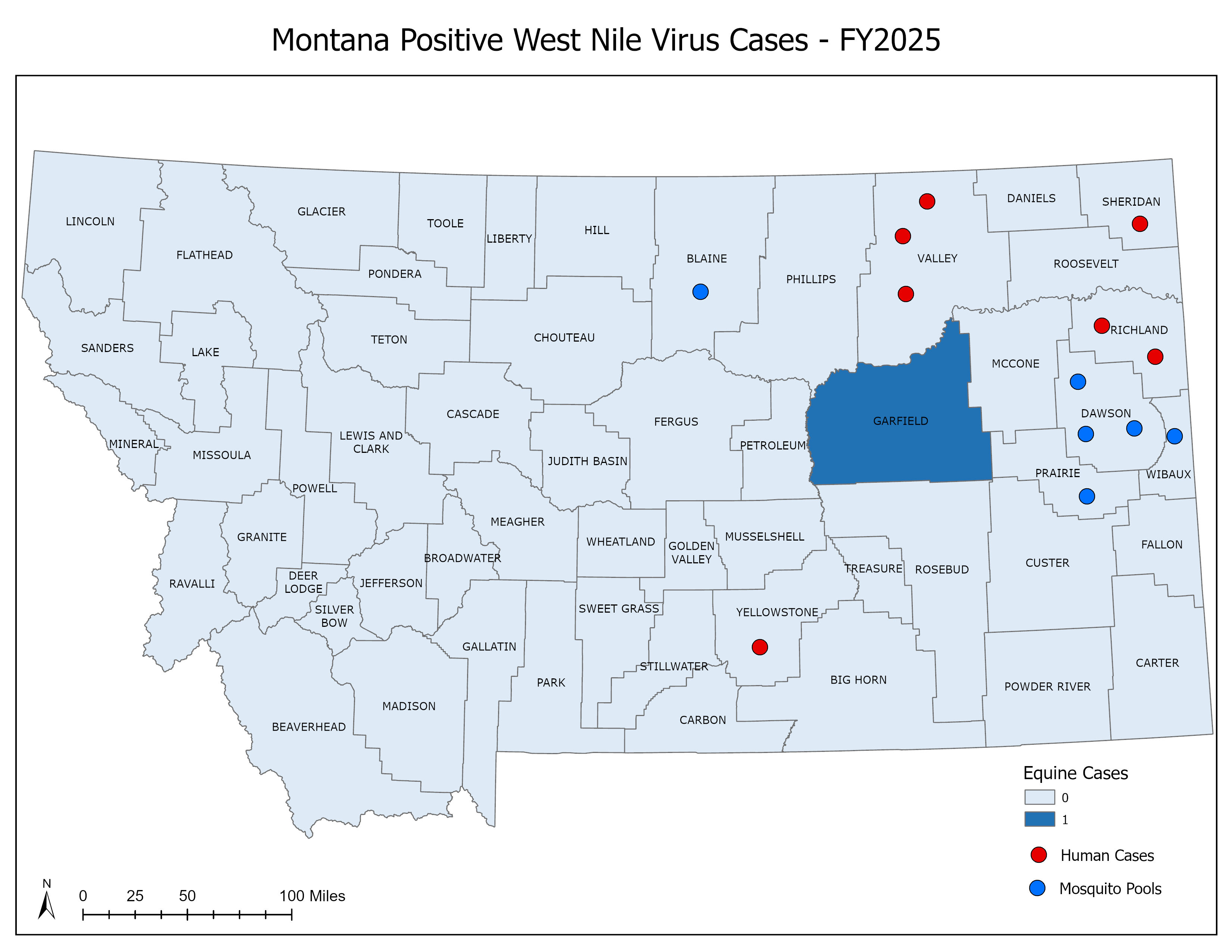
Here to serve the people of Montana and its livestock industry.
Animal Health Bureau
- Permits & Forms
- Brucellosis
- Brucella canis
- Feral Swine
- High Path Avian Influenza
- Johne's
- Rabies
- Trichomoniasis
- West Nile Virus
- National Poultry Improvement Program (NPIP)
- Pay for Permits Online
Helpful Links
Contact Information
Department of Livestock
Animal Health Bureau
PO Box 202001
Helena, MT 59620-2001
Email: livpermits@mt.gov
West Nile Virus
Disease Summary
West Nile Virus (WNV) is a viral infection that can cause encephalitis (inflammation of the brain) or meningitis (inflammation of the lining of the brain and spinal cord). WNV is spread by the bite of an infected mosquito (vector). Mosquitoes become infected when they feed on infected birds. Infected mosquitoes can then spread WNV to humans and other animals when they bite. WNV primarily affects birds, but can also infect bats, horses, cats, dogs, chipmunks, skunks, squirrels, domestic rabbits, alligators, and humans.
Historically in Montana, horses testing positive for WNV who were also showing clinical signs had not been vaccinated. The WNV vaccines available for horses have shown to be effective against the virus, protecting animals from the development of clinical signs. For this reason, the American Association of Equine Practitioners (AAEP) recommends administration of a WNV vaccine as part of their core vaccination guidelines.
Positive WNV cases are also reported to the Department of Public Health and Human Services (DPHHS) to support identification of positive mosquito pools within Montana and to help with messaging for WNV prevention in humans. While direct transmission of WNV between animals and people does not occur, a veterinarian’s diagnosis of WNV in an animal still warrants client education about the zoonotic potential of the virus. An infected mosquito is the route of transmission for both animals and humans, so a positive case of WNV in a horse, cat, dog, bird, or rabbit, suggests that the animal owner may have been exposed to the same infected mosquito population.
2025 Positive West Nile Cases
| Month | County | Species | Vaccine History | Travel History | Outcome |
| September | Cascade | Equine | No | No | Euthanasia |
| September | Musselshell | Equine | No | No | Recovered |
| September | Yellowstone | Equine | No | No | Euthanasia |
| September | Musselshell | Equine | No | No | Euthanasia |
| September | Yellowstone | Equine | No | No | Euthanasia |
| September | Stillwater | Equine | No | No | Recovered |
| September | Gallatin | Equine | No | No | Recovered |
| September | Madison | Equine | No | No | Recovered |
| September | Musselshell | Equine | No | No | Recovered |
| September | Broadwater | Equine | No | No | Euthanasia |
| August | Treasure | Equine | No | No | Euthanasia |
| August | Musselshell | Equine | No | No | Euthanasia |
| August | Yellowstone | Equine | No | No | Recovered |
| August | Yellowstone | Equine | No | No | Recovered |
| August | Musselshell | Equine | Yes | No | Recovered |
| August | Sweet Grass | Equine | No | No | Euthanasia |
| August | Yellowstone | Equine | No | No | Recovered |
| July | Yellowstone | Equine | No | No | Recovered |
| July | Custer | Equine | No | No | Euthanasia |
| July | Daniels | Equine | No | Yes | Euthanasia |
| July | Sheridan | Equine | No | No | Euthanasia |
* Presumptive positive
The map below represents WNV positive equine, human, and mosquito pools for FY25 (7/1/2024 – 6/30/2025)

Historical West Nile Data